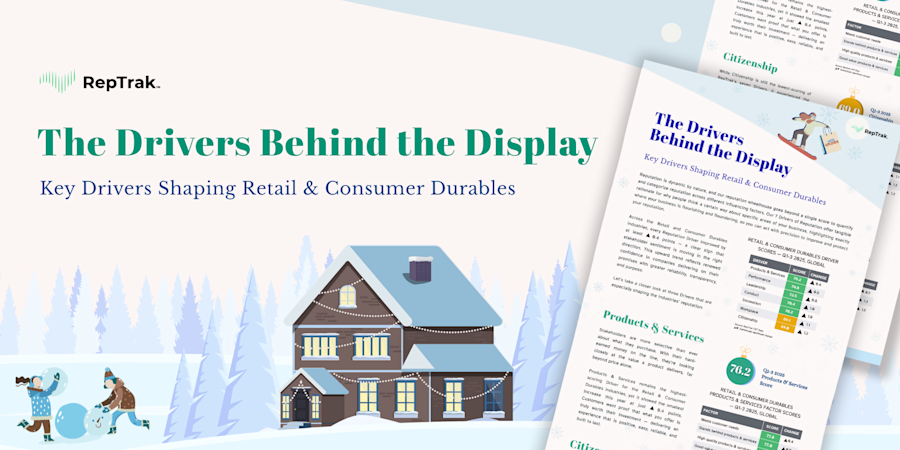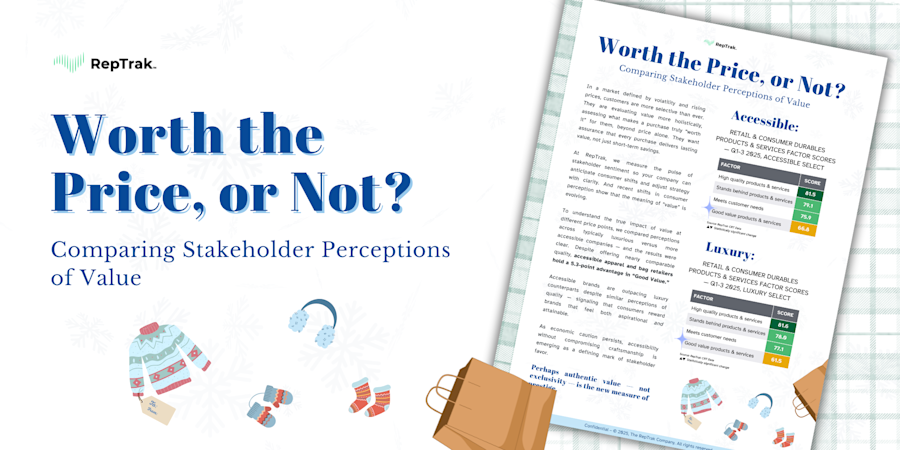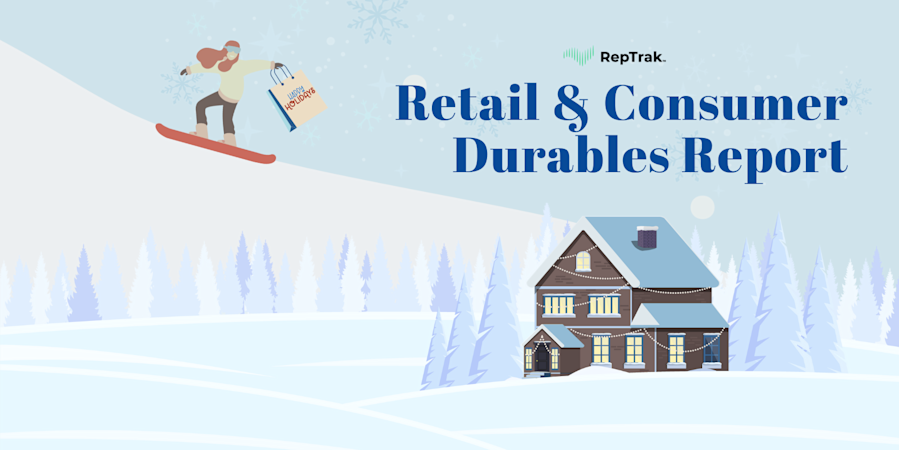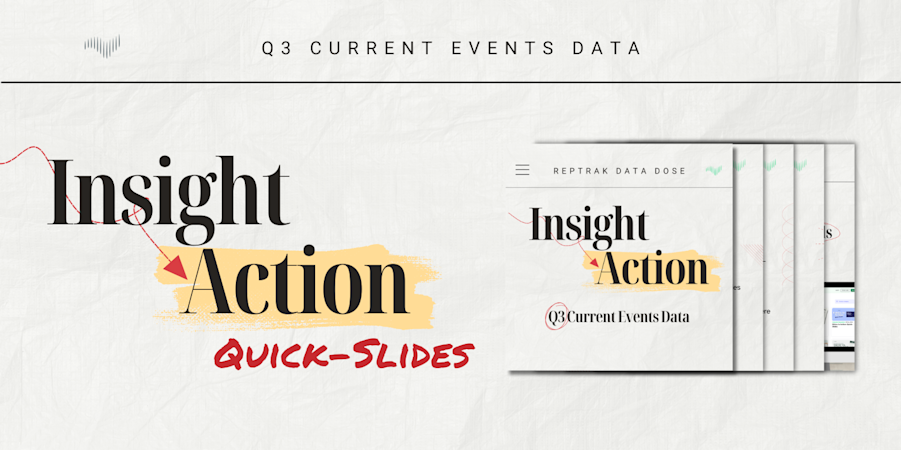Why Has License to Operate Become So Critical for Business Success?
Blog Post30 Dec, 2019
In this blog post, you will learn:
What “license to operate” means
What shapes license to operate
How to earn benefit of the doubt
A company cannot be successful in the long term without support from all of its key stakeholders. It may offer an appealing product, a distinctive service or a profitable model, but these business features do not operate in a silo. On the contrary, a corporation needs simultaneous acceptance from an ecosystem of consumers, employees, community members, opinion influencers, regulators, and investors in order to thrive in today’s economy.
This network of support and implicit or explicit permissions from key audiences is what we broadly refer to as a company’s license to operate. It is the equivalent of getting a thumbs-up from all the different groups that interact with your company, even when you might be experiencing a short-term hurdle or crisis.
The RepTrak model quantifies many business outcomes, such as “willingness to buy,” “willingness to welcome into my neighborhood,” and “willingness to recommend to others,” yet willingness to give a company the “benefit of the doubt” is considered the key indicator of a license to operate. This is because giving a company the benefit of the doubt gets to the essence of a license to operate—it means believing a company is doing the right thing unless proven otherwise.
Giving benefit of the doubt is also the one supportive behavior that can be consistently compared across the stakeholders who interact with your company in different ways. This specific supportive behavior metric also tends to be the hardest for a company to perform in, a fact consistently supported by RepTrak data across markets and industries.
Why does a license to operate matter?
When a company’s permission to operate softens or shifts, its sustainability and capacity to bounce back from a crisis is put at risk. Externally, a declining license to operate is associated with a loss of support from the outside world. Internally, it implies a loss of control over how you run your business.
The most extreme version of this scenario is when a company is legally shut down by regulators. Yet other consequences of a weakened license to operate include additional scrutiny over your business, a diminished ability to attract investments, difficulty in hiring and retaining talent, and lower engagement from consumers, all of which can negatively impact the performance of an organization.
A recent example is Uber’s struggles in London: In November 2019, regulators’ ongoing concern for passenger security and fraudulent accounts resulted in the company losing its license to operate. It’s interesting to note that when describing Uber’s decision to shut down its operations locally, Transport for London’s Director of Licensing, Regulation, and Charging indirectly referenced benefit of the doubt: "It is clearly concerning that these issues arose, but it is also concerning that we cannot be confident that similar issues won't happen again in the future," she said.
Uber continues to operate in many other markets and has invested significantly to maximize the integrity of its application. However, the legal halt in the U.K. was triggered by an ongoing concern about its impact on society and consumer safety.
It is also worth highlighting that in our 2019 Global Reputation study, which captured the reputation of large companies across 15 markets, Uber’s reputation was lower in the U.K. than in any other country. Conducted in January 2019, our study predicted the local challenges experienced by Uber to achieve emotional buy-in in this particular market.
What shapes your license to operate?
As illustrated by the Uber example, your license to operate matters most critically among regulators, yet it is also influenced by other groups. In fact, the term “social license to operate” has been frequently used by the mining industry when describing its relationship with local communities affected by their operations. It alludes to the fact that a mine must count on the acceptance of the immediate community to avoid costly project delays and eventual shutdowns.
Research published in ScienceDirect highlights the importance for mining companies to guarantee fair treatment and engagement of communities, alongside the mitigation of operational impacts, in securing a social license to operate. In this case, a healthy license to operate is expressed through the local community’s benefit of the doubt, despite the invasive effects on local employment, pollution and natural resources.
In our latest report about the mining industry’s reputation, we highlighted the importance for this sector to amplify its strategy, actions, and narrative around sustainability as a way to enhance a challenged reputation and secure their license to operate. If we look at consumers, the story around a stakeholder’s license to operate is very similar, given that consumers are constantly voting with their wallets and choosing to support one company over another.
Today’s “cancel culture” exposes corporations to an increased risk of amplified repudiation, when average consumers or opinion influencers criticize them on social media or in real life. What most of these consumer-driven call-outs have in common is that they’re usually not fueled exclusively against a company’s product, but by discontent towards a company’s purpose, transparency levels, or their social and environmental impact—or some combination of those.
Earning benefit of the doubt
The good news for marketers and executives is that a weakened license to operate among consumers can be restored if a company can genuinely realign its actions with consumer expectations. Natura, Brazil’s largest cosmetic company, illustrated this process in 2018 when it acted on ethical concerns aimed at the Body Shop, one of Natura’s recently acquired subsidiaries.
Prior to Natura’s intervention, the Naturewatch Foundation, an organization that seeks to end animal cruelty, had boycotted the Body Shop for 11 years, due to accusations of animal testing in the company’s products, which clearly contradicted the Body Shop’s cruelty-free origins. Natura listened to the organization and consumers, and quickly acted to achieve necessary certifications, even choosing not to sell its products in markets where animal testing is required.
The company restored its license to operate among environmentally-conscious consumers by correcting the core issue and transparently committing to a production chain that respects its values.
Natura is now among the most reputable companies in the U.S., with excellent scores across the board in the 2019 RepTrak study, including those that matter most for benefit of the doubt.
Earning and maintaining trust
It’s clear that license to operate matters. In a nutshell, it is the collective buy-in that allows a company to manage its business and is a metric intimately tied to corporate reputation—including whether a company has been given the benefit of the doubt by consumers. In fact, RepTrak data across markets suggests that the higher the reputation of a company, the stronger the benefit of the doubt.
As leaders look to mitigate their reputation risk and nurture their license to operate over time, they should focus on what drives stakeholders’ legitimate approval of their business, and should take actions that will earn and maintain trust. Opting for more responsible business practices, or operating with an eye toward better treatment of employees or customers, are both examples of this.
After all, in today’s purpose-driven market, license to operate will most likely be more affected by a company's good behavior than by the things it sells.
Isadora Levy Senior Research Manager The RepTrak Company [email protected]






